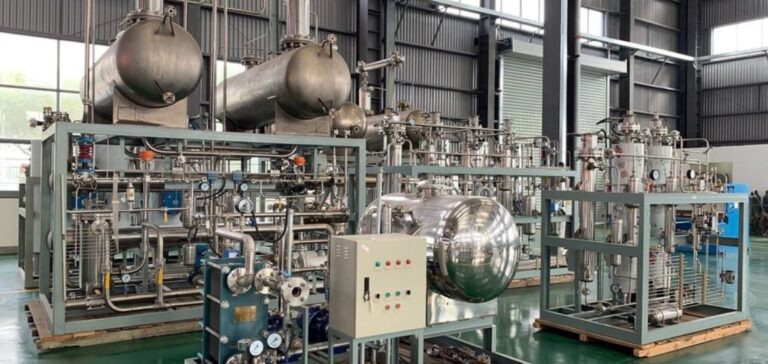The hydrogen sector, essential to achieving carbon neutrality targets, is currently the focus of attention in France.
France Hydrogène, an organization representing the main players in this sector, expresses its concern at the government’s delays in implementing promised support measures.
In September 2020, France launched a national hydrogen strategy, but concrete progress has been slow in coming.
The European Union also pointed out that the stated hydrogen targets were too ambitious, given the lack of favorable legislation for the sector.
Nevertheless, hydrogen projects are multiplying in France, as in the case of the Dijon metropolitan area’s energy transition for its transport system.
The Importance of Hydrogen for Decarbonization
Hydrogen is seen as a key solution for decarbonizing industrial and transport sectors where direct electrification is not viable.
France Hydrogène insists that hydrogen is essential for reducing CO2 emissions and meeting the climate targets set by the Paris Agreement.
However, despite promises of support, several measures remain unresolved, notably the support mechanism for hydrogen production by electrolysis.
Industry players point out that water electrolysis is an essential method for producing decarbonized hydrogen, as opposed to hydrogen currently produced from natural gas.
The support mechanism, announced in 2023 with a budget of 4 billion euros, was to enable selected companies to produce larger volumes of green hydrogen.
This delay threatens France’s decarbonization objectives and could slow down the energy transition.
Economic and financial issues
The Ministry of Finance, headed by Bruno Le Maire, is seen as a brake on the realization of these commitments.
The budgetary rigor imposed by Bercy is worrying hydrogen professionals, who see this sector as a strategic opportunity for the French economy.
Philippe Boucly, President of France Hydrogène, deplores the fact that financial orthodoxy is being applied “on the back of hydrogen”, jeopardizing investments that are crucial to the country’s energy future.
In addition, the sector stresses the importance of heavy-duty, intensive hydrogen mobility, a field in which France could take industrial leadership.
Reaffirming support for these initiatives is essential to maintain France’s industrial and competitive momentum in the global hydrogen market.
Prospects for the hydrogen industry
Hydrogen represents a major opportunity for the reindustrialization of France.
Investment in hydrogen production by electrolysis and support for the value chain, from equipment manufacturing plants to refueling stations, are essential to make this vision a reality.
Industry players are calling for immediate, determined action to ensure that we don’t lose the strategic lead we have built up since the launch of the hydrogen strategy.
The energy transition depends on bold political and economic choices.
France, as a pioneer in the hydrogen strategy, has a duty to turn its ambitions into tangible realities to contribute to global decarbonization and industrial competitiveness.
Current delays could jeopardize not only climate objectives, but also the economic benefits of innovation and job creation in this booming sector.
France’s hydrogen professionals are calling on the French government to provide unfailing support for this strategic sector.
The energy transition is a global challenge, and France must play a leading role.
Support for the hydrogen industry should not be seen as an expense, but as a strategic investment in the country’s energy and industrial future.






















